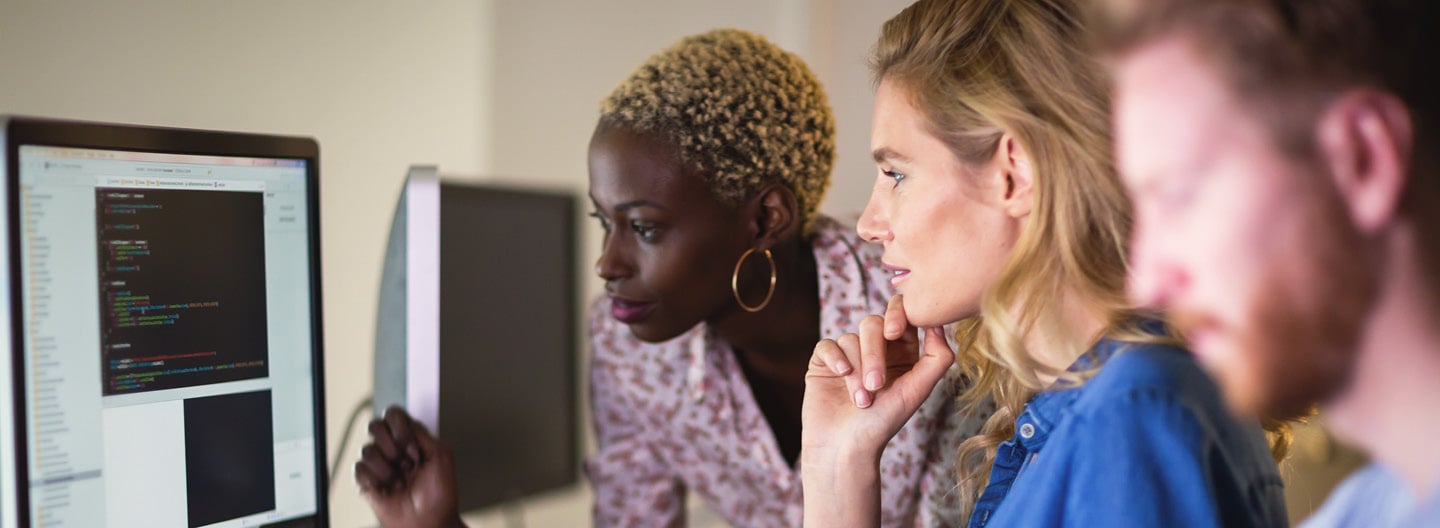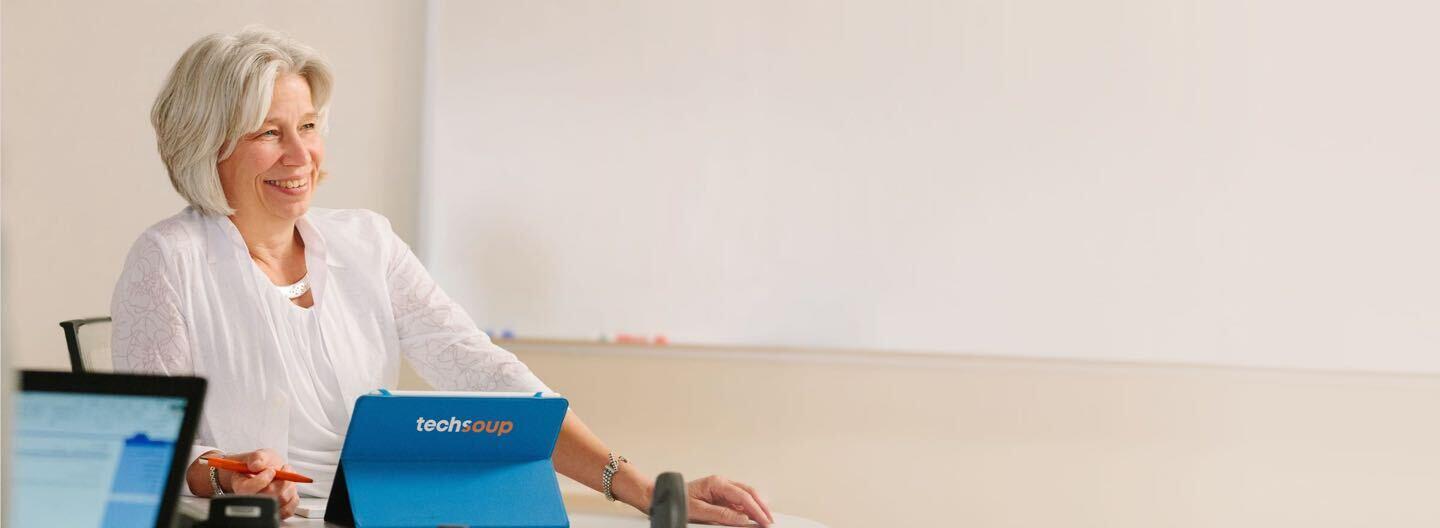Our three-year Growth Capital Campaign successfully closed this week. This campaign was intended to fund the infrastructure to allow us to grow the services we offer to NGOs, corporations, and foundations. It was to strengthen our own organization and the TechSoup Global Network to scale our part of a unique philanthropic supply chain.
Our innovative direct public offering, part of this campaign, included opportunities for our community members to make small investments, as low as $50. This approach engaged our community into being a part of growing the resources available to civil society and earning a financial return on the investment. We also received loans, recoverable grants, and direct donations. All of this supported our mission, in the form of the five strategic initiatives that we outlined in a series of blog posts published at the beginning of this campaign:
- Why Is TechSoup Investing in a New Nonprofit Marketplace?
- Why Is TechSoup Investing in Apps for Good?
- Why Is TechSoup Investing in Validation and Data Services?
- Why Is TechSoup Investing to Improve its Business Processes?
- Why Is TechSoup Investing in a Cooperative Technology Platform?
When we launched, we couldn’t imagine the things we would face: a news story about a mysterious illness in Wuhan, China, that would grow into a global pandemic that wreaked havoc on every aspect of our lives. And the resilience of civil society and our own network in responding to the increased demands and the changing reality of what it meant to go to work each day. We couldn’t imagine the way the world would erupt in response to social justice and the way people would rise up to call for Black lives to matter from throughout the United States to women marching in support of their rights in Poland.
We couldn’t imagine that we would be recognized by MacKenzie Scott and Dan Jewett with a significant grant to support the infrastructure that allowed resources to get in the hands of people who most need it. "People struggling against inequities deserve center stage in stories about change they are creating," wrote Scott in the announcement of this round of 286 grantees. "This is equally — perhaps especially — true when their work is funded by wealth. Any wealth is a product of a collective effort that included them. The social structures that inflate wealth present obstacles to them. And despite those obstacles, they are providing solutions that benefit us all."
We couldn’t imagine that we would race to provide, in our partner TechSoup Italia’s words, a "marathon" of webinars, daily live-streamed coffee chats to directly answer nonprofits' questions, or more than 1,600 online events to learn and share and overcome social distance over the course of the next year throughout the TechSoup Global Network.
Now here we are. We have made great progress in achieving our goals, and we're energized about what we're learning and offering the sector. Here are a few highlights.
We have strengthened the support we offer through TechSoup Courses. In February of 2020, 2,886 learners from 29 countries were enrolled in one or more courses. In just five weeks as the pandemic reality set in, this number grew to 41,301 learners from 99 countries. Learners accessed free COVID-19 information combined with remote working application training, including courses on Microsoft Teams. Today, TechSoup Courses serves 67,000 learners from 180 countries in three languages (soon available in five languages).
Organizations reached out to TechSoup in large numbers as their immediate needs for digital technologies and support spiked. Like everyone else in the world, we were impacted by supply chain issues associated with hardware. However, as the need for digital solutions increased, the TechSoup Global Network was able to maintain the supply chain that put those solutions in the hands of NGOs around the world. From March through December 2020, NGOsource saw a 60 percent increase over the previous year in requests for equivalency determinations to support grantmaking from the U.S. to civil society organizations around the world. This is the same service that allowed eight funders to more quickly collaborate and fund vaccine development through the Coalition for Epidemic Preparedness Innovations (CEPI).
The resources we've raised invest in the resilience of our network, strengthening our regional centers, and improving the security and performance of our infrastructure to lower the cost of delivering our programs.
All around the world, organizations rely on cloud-based solutions that we and our partners have helped provide for their digital transformation journey. In Ethiopia, for example, after a month of being closed due to COVID, Women in Self Employment (WISE) Ethiopia worked with TechSoup Global Network partner Kenya Community Development Foundation (KCDF) to migrate its files to the Microsoft cloud. "Our staff members can now work and collaborate from anywhere and anytime," they reported. "We started using an enterprise grade email (Outlook) using our new domain name which increases trust among our partners and the general public. We don't have to worry about data loss or security incidents anymore as the organization files are stored in the cloud."
We must continue to strive toward achieving our goals.
What is the future of our work?
We have been learning, planning, and implementing to continuously add more value to the civil society sector. Looking forward, we are activating the strategic initiatives that we outlined around three imperatives.
1. Relationships. Relationships are at the heart of everything we do. Our first priority is the relationships we have with civil society and its allies. We want to be sure that we share what we learn from one another. That learning could come from online discussions, such as the ones we held at our first virtual TechSoup Global Network Summit in June, two weeks of discussions about how to improve the value we offer the sector. It could come in the form of a global survey (PDF) reaching 11,700 respondents in 135 countries and 41 languages. Or learning could come through qualitative research, such as the interviews that led to Five Useful Takeaways from Nonprofits Working in Food Security. For civil society to thrive, we all need to be able to connect to share our challenges and successes, enable knowledge exchange, and share resources that help us all move toward achieving the types of outcomes outlined in the Sustainable Development Goals.
2. Direct Support. For 30 years, TechSoup has been a trusted partner to help NGOs adapt and use technology for mission achievement. For every step of the digital journey — from adoption to transformation to fluency to resilience — TechSoup provides support. In the last three years, with direct grant support from Adobe, Box, Cisco, Dell, Fidelity Charitable, Okta for Good, and VMware, we launched the Digital Assessment Tool. This provides a way for organizations to identify where they are in their digital journey and to improve their ability to make decisions about the capabilities they should build.
Using this tool is only one part of the journey toward digital resilience. It also requires decision-making support, implementation assistance, system management, and more advanced training. Direct support allows each of us to standardize our usage of digital solutions, which increases our information security and heightens our potential for collaboration. It makes us less vulnerable to external shocks and enables us to take advantage of the best available offerings for leading and managing.
3. Optimized Solutions. This makes the vision of apps for good to organizations a reality. Rather than distinctly coded and marketed products, apps for good become workflow automations that make use of the technology that organizations already have available. This might be as simple as using automations like Microsoft Bookings. Or it could be smart new products like eCASS (electronic Comprehensive Addiction Services Solution), from our TSGN partner Enclude. Built on the Salesforce infrastructure, eCASS provides a single addiction service solution for affordable, efficient information from 85 addiction service providers across Ireland. Or it could come in the form of De Gardă (in Romanian) from our own Caravan Studios — redeployable code that allows the anonymous report of human rights issues — in this case from frontline healthcare workers facing the pressures of COVID-19.
These are practical applications of each of our strategic initiatives — including an NGO tech marketplace, apps for good, and data and validation services, that lead to improved efficiencies for NGOs and more overall effectiveness. Improved efficiencies and effectiveness for changemakers at the frontlines ultimately means they will have more agency. It leads to greater ability for civil society to deliver on missions, to create well-being, and ultimately, to create the communities of the future they envision. The infrastructure we are investing in will ensure that this supply chain — a supply chain for civil society — is led and collaboratively owned by civil society, brings wealth to civil society, and is protected by civil society.
We feel an urgency to achieve even more. We know the world is filled with complex problems that require us all to work together to address climate change, racial justice, our fragile democracies, and migrating populations. Civil society is leaning into all of these issues and more. It's our job to support and engage with that work with the organizations that we serve and in our communities. We're here and we're ready.
Top photo: Shutterstock







